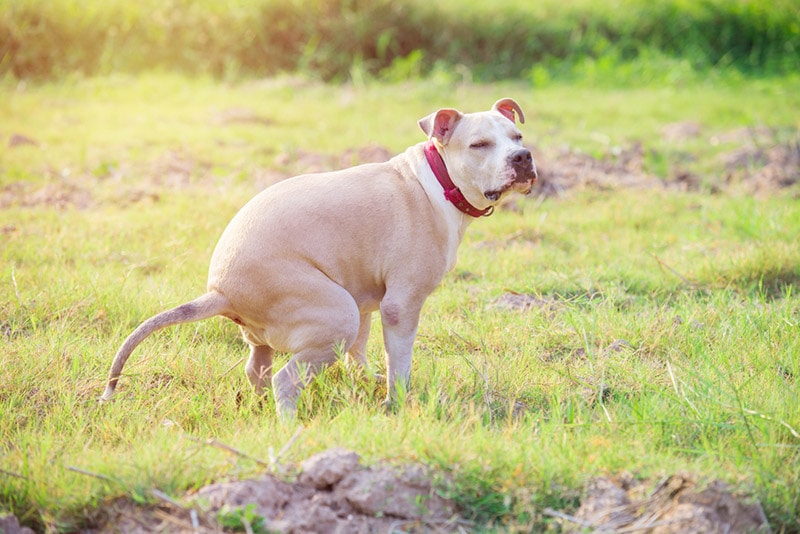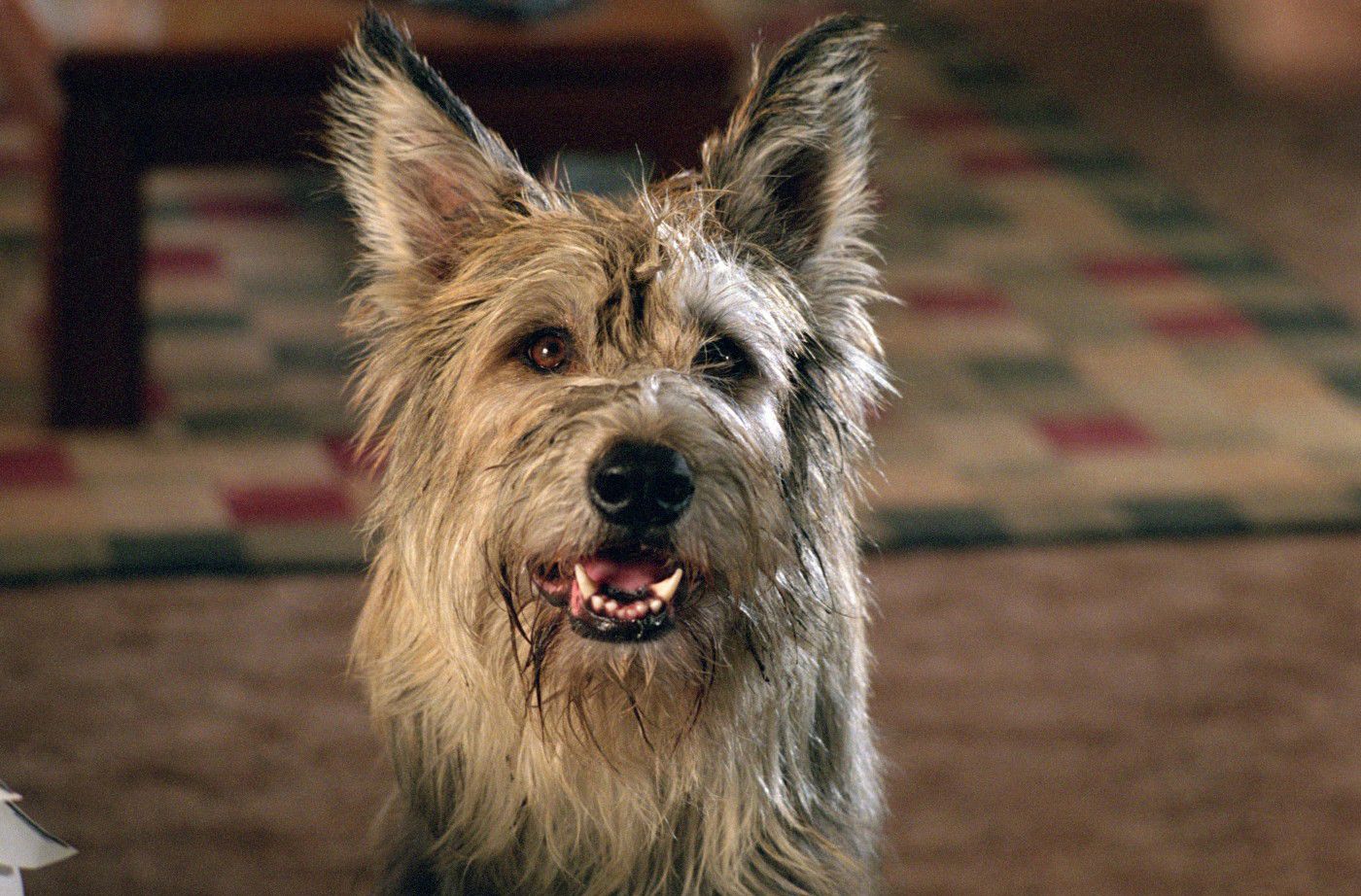How to Calm Dogs on the 4th of July: 10 Useful Ideas

Updated on

While the 4th of July is fun for many people, the fireworks display can cause quite a bit of stress for dogs. Unlike us, dogs don’t know that fireworks aren’t a threat, and their suddenness and unpredictability can cause some dogs to panic, hide in fear, seek comfort from you, become restless, or even pee themselves. These are all signs of noise anxiety.
So, what can we do about this? Most importantly, avoid taking your dog to any fireworks displays. In addition to this, there are things you can try at home to calm your dog when there’s a firework display going on nearby.
The 10 Great Ideas on How to Calm Dogs on the 4th of July
1. Create a Safe Space
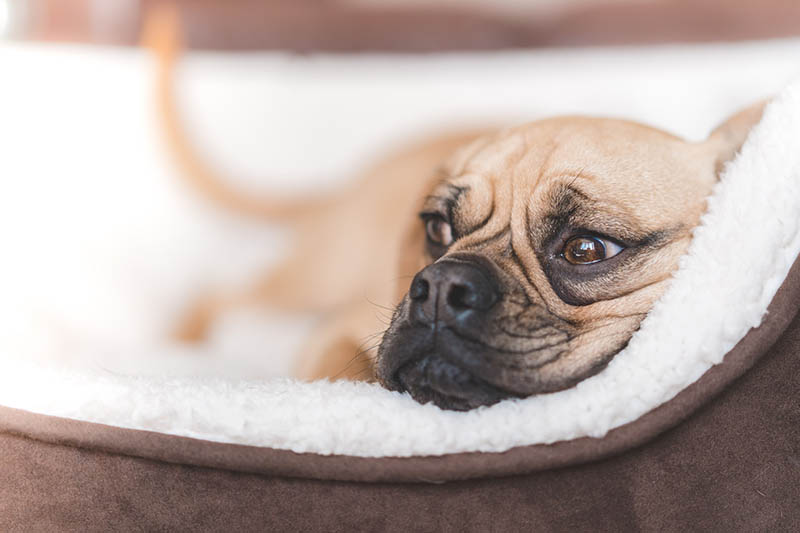
Make your dog’s favorite spot in the house as comfy and cozy as possible to help them feel safe on the 4th of July. If your dog has a crate or just a spot they like to hang out, kit it out with their favorite soft blanket and toys. This provides them with a safe, familiar space they can retreat to if they’re feeling anxious.
2. Try Dog Ear Covers
You can find headbands similar to those humans wear but designed for dogs. These are made of soft material and you simply pop them around your dog’s head, making sure the ears are well covered.
Though they look a little silly, they may help muffle the sound for nervous dogs on the 4th of July. There’s no guarantee they’ll work for every dog, though. If you’re interested, you can find them easily online.
3. Stay Close
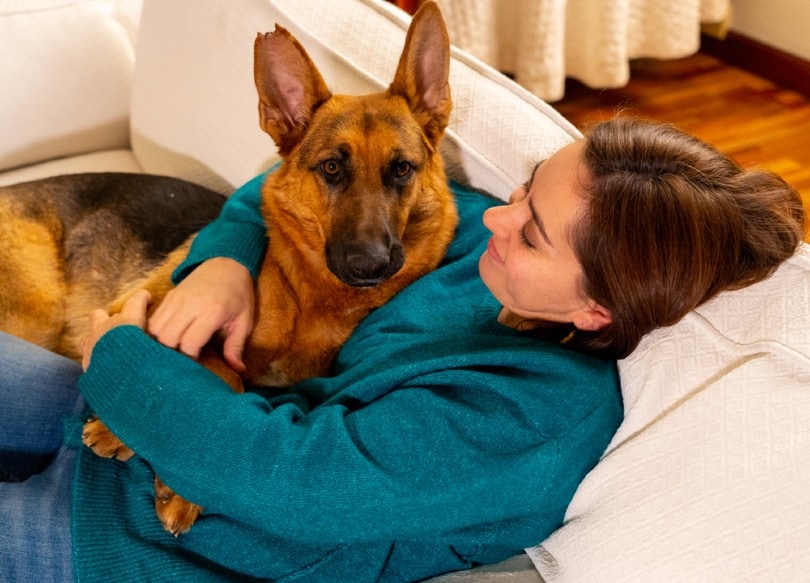
Your presence will be really comforting to your dog if they’re feeling afraid or anxious on the 4th of July. If possible, make yourself available for cuddles and snuggles on the sofa if that’s what your dog likes to do. Avoid shutting your dog in another room all by themself—they may panic and injure themself trying to get out or feel stressed not knowing where you are.
If you can’t be there on the 4th of July, try to ensure that your dog isn’t left alone and is with someone trustworthy. This might mean hiring a pet sitter.
4. Act Normally
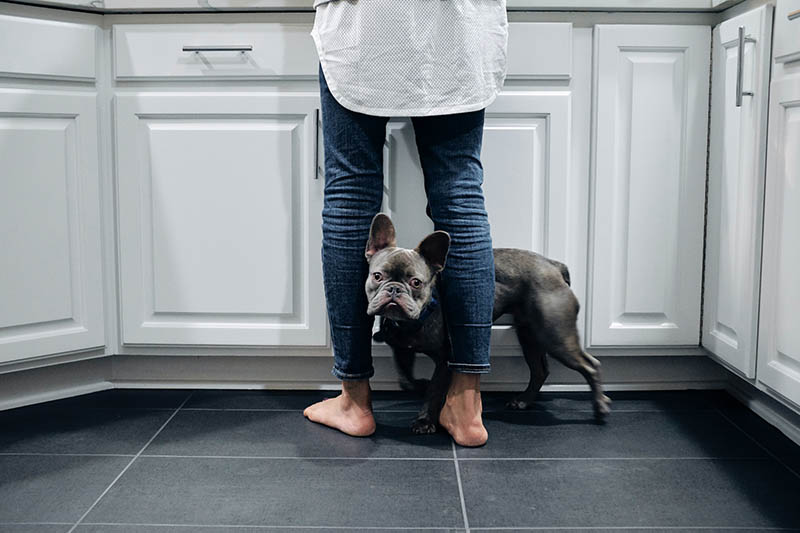
If you get excited on the 4th of July, your dog is sure to as well—and perhaps not in a good way. The best course of action is to stay calm and behave as normally as possible. Try not to react when the fireworks start to go off. Your dog trusts you, so this attitude shows them that there’s nothing to be afraid of.
5. Provide Comfort

If your dog is frightened, try comforting them by petting or massaging them and talking to them in a calm, level voice. Avoid using high-pitched tones or fretting over them, as this might stress your dog out more. The best approach is to comfort and support your dog with no fuss.
6. Keep Your Dog Indoors

This no doubt goes without saying, but keep your dog indoors when fireworks are going off. Close the curtains and windows to muffle the sound and help keep out sudden flashes from the display that might scare your dog.
It’s also a good idea to secure your doors to make sure there’s no escape route for a panicked dog that might rush for the door without thinking. Make sure their microchip and ID collar information is up to date just in case.
7. Distract Your Dog

You could try playing with your dog and their favorite toy to distract them from the noises outside. In some cases, the dog might be too anxious to think about playing, but it might help dogs that are toy-motivated or only mildly anxious.
8. Walk Your Dog in Advance
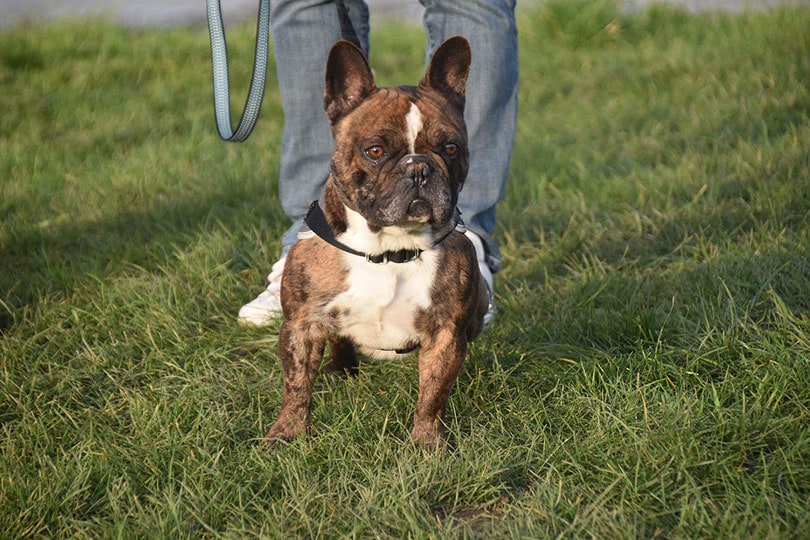
Taking your dog for a nice, long walk in the afternoon or early evening before the fireworks start may help for two reasons. One is that it prevents you from having to take your dog out when the fireworks are in full swing. The other is that it can tire your dog out so they’ll feel more relaxed later in the evening.
9. Feed Your Dog in Advance
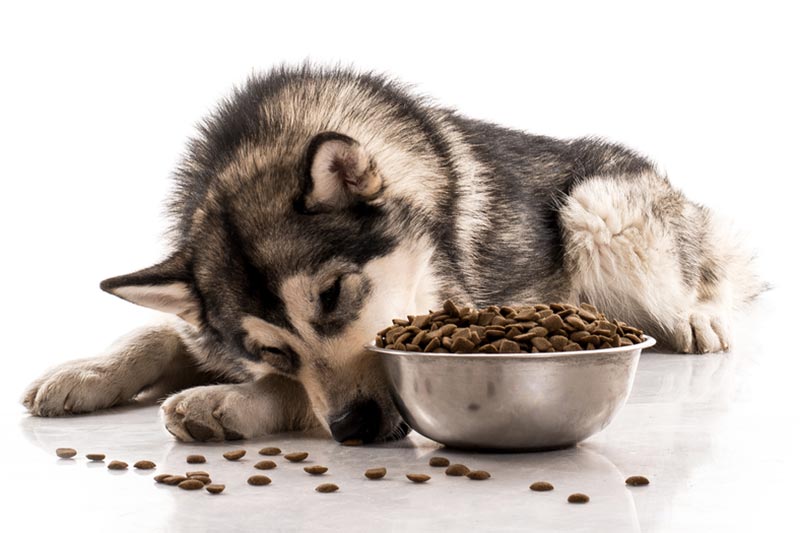
In addition to walking your dog before the festivities begin, it’s a good idea to feed them in advance, too. A fed dog is more relaxed and happy than a dog waiting for their food, so ensuring they’ve had a good meal before the fireworks start might be helpful.
10. Consider Calming Aids
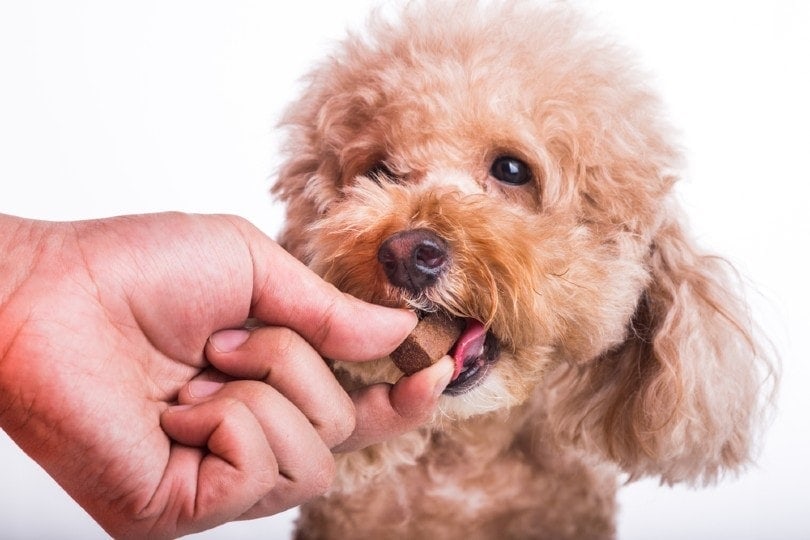
If your pup suffers from severe noise anxiety, we recommend talking to your vet about possible calming aids or even anti-anxiety medication. Please always follow your vet’s advice on medicating your dog and never give your dog any kind of medication without speaking to your vet first.
Conclusion
And there we have it—10 useful tips you can put into practice for making the 4th of July less stressful and anxiety-inducing for your dog. If your dog suffers from anxiety on a regular basis or has a severe reaction to noises like fireworks, we recommend speaking to your vet to get to the root of what’s causing their anxiety.
Featured Image Credit: Camylla Battani, Unsplash



